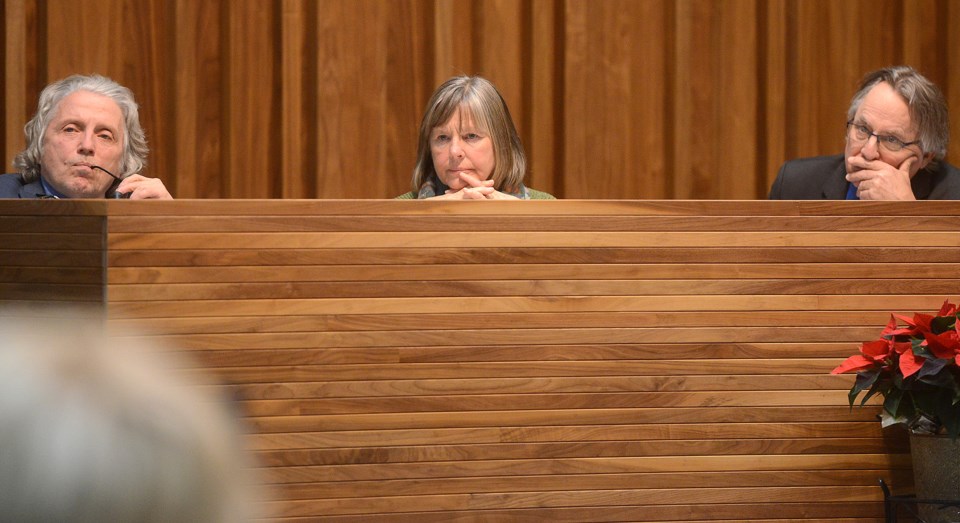Female politicians make up 31 per cent of Guelph City Council, just meeting the 30 per cent minimal figure of women in government the United Nations deems necessary if women’s issues are to be adequately represented.
Guelph still fares better than the national 26 per cent average of women in local politics.
More women need to run for public office and leadership positions if we are to have more balanced female representation across all governments, said organizers of the upcoming Women’s Campaign School, a one-day event in Guelph designed to help potential female candidates in putting their names forward for the 2018 municipal election.
“I believe it is our time, and we need women to step up and be courageous, said Ward 3 councillor June Hofland, who will host the first Guelph-Wellington Women’s Campaign School – 'Raising Women’s Voices' – at Guelph City Hall on Feb. 24.
“A critical mass of at least 30 per cent elected women is needed before legislatures produce public policy representing women's concerns and before political institutions begin to change the way they do business,” she said.
The campaign school is targeted toward women thinking of running for school trustee or councillor, women who may be interested in local government and anyone wanting to support a woman’s campaign.
It features a day of inspirational training sessions, talks and education, led by current and former female politicians and community leaders, and equips participants with the tools needed to run a successful campaign.
“I know when I decided to put my name forward in 2006, I had no experience on how to build a campaign team, fundraise and certainly was not familiar with the role of a city councillor. What I did have was a love for my community and wanted to be involved in building my community and effect change,” Hofland said.
Teresa McKeeman, one of the event’s organizers and long-time member of the Canadian Federation of University Women, said she has heard from many women who feel politics is a 'dirty game' and question why they would want to work in such an environment through focus groups run by CFUW and University of Guelph.
“Women tend to work in cooperative and collaborative ways. The 'winner take all' approach in politics is not attractive to them. They feel they can contribute in better ways through their work in organizations that advocate for change,” she said.
Despite a shaky political landscape and claims of sexual misconduct and bullying that has reached to highest levels of government, McKeeman and Hofland are optimistic of a future that includes a balanced number of women in public office and leadership positions.
“It is more important than ever to encourage and support women to run for public office. We need women in all roles of leadership, all levels of government. We need women on our municipal councils, on school boards and governance boards. When the demographics in elected positions mirror that of society, a country's full social capital is realized. Diverse representation creates a better environment for women and men,” Hofland said.
Prime Minister Justin Trudeau recently told Liberal MPs that change is needed to encourage more women to enter politics. ‘Add women, change politics, is how we will make a better country,’ he said, a statement which McKeeman and Hofland said they wholeheartedly agree with.
“I believe with the shift that is happening in the world, more women will find the courage to consider a political future. So yes, I am optimistic because more women in politics will mean a healthier and more democratic political system,” said Hofland.
Hofland said she hopes the campaign school will help women understand they are not alone as they are supported and surrounded by many others, and leave with the tools they need to get started.
“My hope for 2018 is that we will see more women in leadership roles,” Hofland said.
The Women’s Campaign School 'Raising Women’s Voices' is a partnership between CFUW Guelph, The People and Information Network (PIN), The Rhyze Project and the Zonta Club of Guelph.
It runs Feb. 24 from 8:30 a.m. to 3:30 p.m. Cost is $20, including lunch. Registration deadline is Feb. 17. For more information and registration, visit here.
For statistics and more information on women in local government, visit here.
